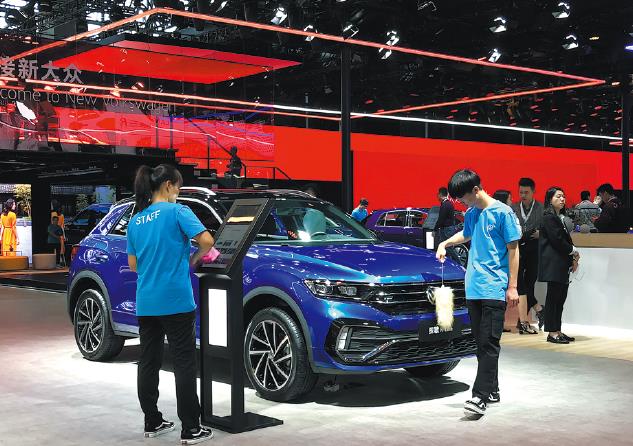Top car industry body calls for favorable policies

Measures aim to support manufacturers amid falling purchases nationwide
The China Association of Automobile Manufacturers is calling on authorities to launch a slew of favorable policies that include extending the term of subsidies for new energy vehicles to boost the country's slowing car sales.
"Without favorable policies and market demand, it will be difficult for the automotive industry to steer back to normal in a short time," said Shi Jianhua, the association's deputy secretary-general, on Thursday.
Due to the coronavirus outbreak which has kept people away from showrooms, vehicle sales in February slumped 79 percent from the same month in 2019 to 310,000.
In the first two months of 2020, vehicles sales totaled 2.24 million in the country, down 42 percent year-on-year, according to the CAAM.
Production did not fare any better. A total of 285,000 vehicles rolled off assembly lines in February, plunging almost 80 percent year-on-year.
With both production and sales falling sharply, the auto industry will suffer a lot in the first half of the year, said the association.
Shi said it is now hard to forecast vehicle sales this year. The association estimated that sales would dip 2 percent this year before the coronavirus outbreak hit. China's vehicle sales fell in 2018 and 2019.
Another car association in the country, the China Passenger Car Association, has scaled down its estimate of vehicle sales this year and predicted a fall of 8 percent from 2019.
One of the measures Shi's association has put forward is extending the term of subsidies for new energy vehicles, sales of which fell sharply in February.
Statistics show that just 13,000 electric cars and plug-in hybrids were sold in February as the coronavirus outbreak prevented people from visiting showrooms. In the same month last year, it was 53,000.
Their sales had shown a downturn for months before the epidemic because of the subsidies cutback in 2019.
The country started to offer financial incentives in 2009 to foster the sector's development. They are scheduled to stop completely by the end of 2020.

